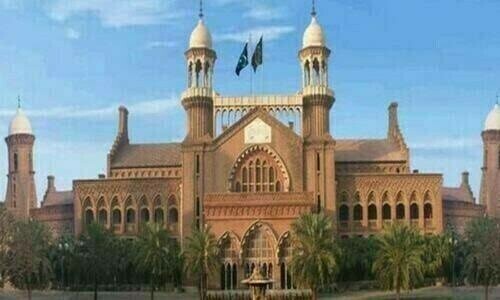THE call for a nationwide strike today by the Supreme Court Bar Association has stirred memories of 2007, when the black coats took to the streets to put pressure on a military-led dispensation to cede to constitutionalism.
The Lawyers’ Movement, as it came to be known, was won due to the efforts of the legal fraternity, but there were significant contributions too from politicians, the media, and civil society, each of which played a distinct role in pushing back against an oppressive regime that had persistently refused to obey the laws of the land.
The dictator in question was eventually convicted of high treason, but lessons from their mistakes and excesses were never learnt. Over time, the tumult and turbulence which marked the end of that regime seem to have been forgotten, and we now see a new set of actors toying with the Constitution, undermining the judiciary, suspending civil liberties and suppressing dissent.
It is, therefore, no surprise that the veterans of that movement are once again taking the lead in efforts to mobilise the legal fraternity against what they see as a ‘creeping martial law’ disguised as an effort to ‘stabilise’ the country.
The resolution passed at the All Pakistan Lawyers Convention organised by the SCBA reads like a charge-sheet against the state: it demands the release of all political prisoners, an end to the security establishment’s meddling in political matters, upholding the Constitution and rule of law, and the primacy of civilian supremacy.
It also opposes the trial of any civilian in military courts, calling it a negation of fair trial, due process and other fundamental rights, demands general elections within the 90-day period defined in the Constitution; warns the government to stop interfering in the judiciary’s working; and seeks punishment for those who continue to defy the court’s orders.
These demands can hardly be described as radical or revolutionary. Indeed, they seem rather straightforward in that they simply reiterate that the respective roles each stakeholder has been assigned by the state must be adhered to.
It reflects poorly on Pakistan’s civil society leadership that it is not organisations dedicated to protecting basic liberties and fundamental rights that are taking the lead in asserting these demands, but professional lawyers distressed at our escalating social decline. In the past, advocates for human rights — Asma Jahangir and I.A. Rehman foremost among them — would boldly fight for what few dared demand.
But with these icons no longer among us, it seems as if somewhere, somehow, even those who were once dedicated to the prosperity of our people have gradually lost their conviction. One continues to hope that the silence of Pakistan’s brightest is born more of inexperience or inaction, rather than any enduring disillusionment or apathy.
Published in Dawn, September 9th, 2023













































Dear visitor, the comments section is undergoing an overhaul and will return soon.